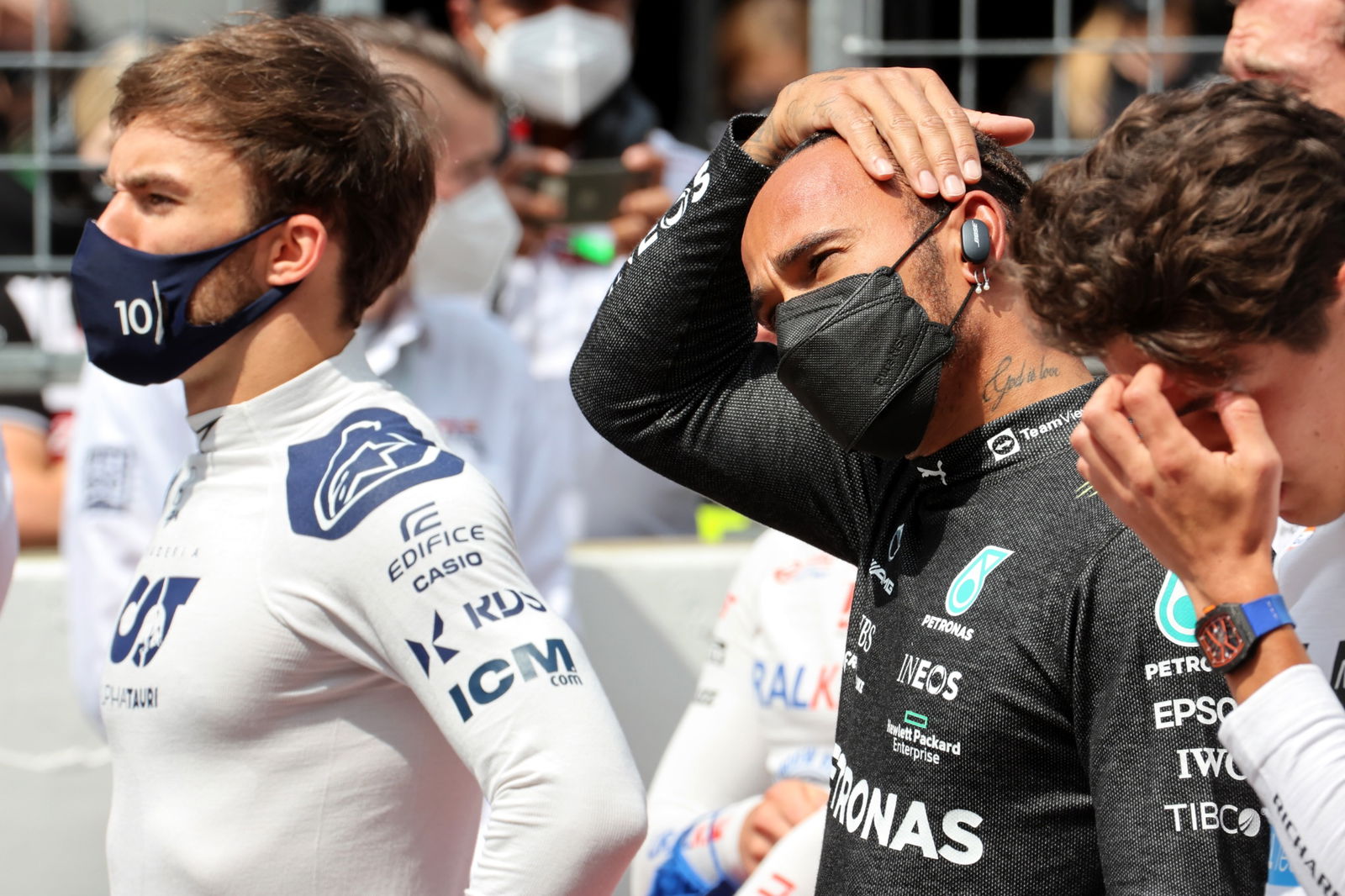Hamilton Commission report reveals F1 diversity findings

The report - which was inspired by seven-time world champion Hamilton after reviewing the end of season F1 photo in 2019 - was published on Tuesday ahead of this weekend’s British Grand Prix and runs to over 180 pages of research in a bid to determine why there is an underrepresentation of black people in UK motorsport.
It is the culmination of a 10-month research project alongside The Royal Academy of Engineering which included detailed data analysis, surveying and literature review in sport, education and employment, as well as primary quantitative and qualitative research involving 2,400 young people.
In-depth interviews were conducted with over 100 participants over the past year, including representatives from each of F1’s 10 teams.
The report states that "factors within wider society, some of which are systemic in nature, as well as practices within Formula 1 have been identified as contributing towards a situation in which only 1 percent employees in Formula 1 are from Black backgrounds".
Some of the issues highlighted include hiring practices within motorsport teams that favour students from a select group of high-ranking universities, geographical factors, lower expectations of black students' academic abilities; and the lack of black role models in STEM teaching positions.
The report also argues that F1’s new cost cap acts as a barrier that will ultimately deter teams from offering young black students apprenticeships.
“Through The Hamilton Commission, we’ve developed a comprehensive summary of the systemic issues preventing young Black people from pursuing careers in STEM,” said Hamilton, who is the first and only black F1 driver.
“Our team focused on evidence, and ensured every claim was followed up with facts and interviews. We’ve invested in accuracy to ensure our data represents the experiences of minority students, young people and motorsport employees.
“We had to be focussed in our approach, and specifically researched the Black community, which is personal to me but also because we shouldn’t assume the same barriers affect the same groups.
“That said, our hope is that where possible, this research will be useful and replicable amongst other underrepresented groups and, hopefully, other industries.
“Through our Commission, we make ten recommendations which relate to shifting change within motorsport, maximising early-stage opportunities for Black youth and providing additional careers education support to those who need it most.
“We know there is so much that needs to change when it comes to racial equality, but it’s impossible to tackle everything at once. Instead, we carefully chose these recommendations to ensure we have a focussed approach and, more importantly, recommendations that I can take responsibility for taking forward.”

What are the recommendations?
The Hamilton Commission has subsequently outlined a series of recommendations through which F1 teams and other motorsport organisations can promote an increase in people from black and ethnic minority backgrounds.
It says the following 10 recommendations fall into three categories: support and empowerment, accountability and measurement, and inspiration and engagement.
1) Broaden access to motorsport by expanding apprenticeships and an exemption to the cost cap that would exclude the salaries of new apprentice recruits.
2) Establish a new innovation fund to help address the factors that contribute to the high proportion of students from black backgrounds who get excluded from school.
3) The piloting of new approaches to increase black teachers in STEM subjects.
4) Targeted support programmes for black students in post-16 education to enable greater progression into Higher Education courses and work-based training opportunities.
5) The creation of scholarship programmes to enable black graduates from degrees in engineering and allied subjects to progress into specialist motorsport roles.
6) The implementation of a diversity and inclusion charter by F1 teams and other motorsport organisations.
7) Encouraging as many schools as possible in the UK to adopt the National Education Union Anti-Racism Charter for schools.
8) Calling on the Department of Education and other bodies holding education data to enable easier public access to disaggregated data on student and staff characteristics at subject level.
9) Development of best practice guidelines for STEM inspiration and outreach activities.
10) Calling for additional STEM activity support to supplementary schools led by black community groups across the UK.
F1 ready to act on findings
F1 president and CEO Stefano Domenicali described The Hamilton Commission as a “comprehensive and impressive report that shows the passion Lewis has for this very important issue.”
Domenicali said that F1 will detail the next steps in its own diversity drive in the coming days.
“We will take the time to read and reflect on all of the findings, but we completely agree that we need to increase diversity across the sport,” he added. “We have taken action to address this and will be announcing more actions in the coming days.
“We want a sport that is representative of our hugely diverse fan base and that is why Formula 1, the FIA and all the teams are working hard to deliver on our detailed plans to create positive change across the sport. There is always more to do and the report will stimulate thoughts about further actions that are required.”


